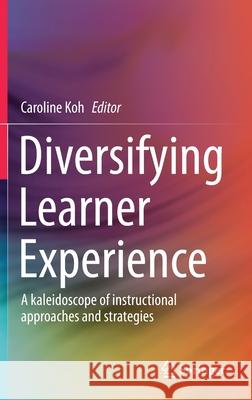Diversifying Learner Experience: A Kaleidoscope of Instructional Approaches and Strategies » książka
topmenu
Diversifying Learner Experience: A Kaleidoscope of Instructional Approaches and Strategies
ISBN-13: 9789811598609 / Angielski / Twarda / 2021 / 257 str.
Diversifying Learner Experience: A Kaleidoscope of Instructional Approaches and Strategies
ISBN-13: 9789811598609 / Angielski / Twarda / 2021 / 257 str.
cena 564,88
(netto: 537,98 VAT: 5%)
Najniższa cena z 30 dni: 539,74
(netto: 537,98 VAT: 5%)
Najniższa cena z 30 dni: 539,74
Termin realizacji zamówienia:
ok. 16-18 dni roboczych.
ok. 16-18 dni roboczych.
Darmowa dostawa!
Kategorie:
Kategorie BISAC:
Wydawca:
Springer
Język:
Angielski
ISBN-13:
9789811598609
Rok wydania:
2021
Wydanie:
2020
Ilość stron:
257
Waga:
0.54 kg
Wymiary:
23.39 x 15.6 x 1.6
Oprawa:
Twarda
Wolumenów:
01
Dodatkowe informacje:
Wydanie ilustrowane











